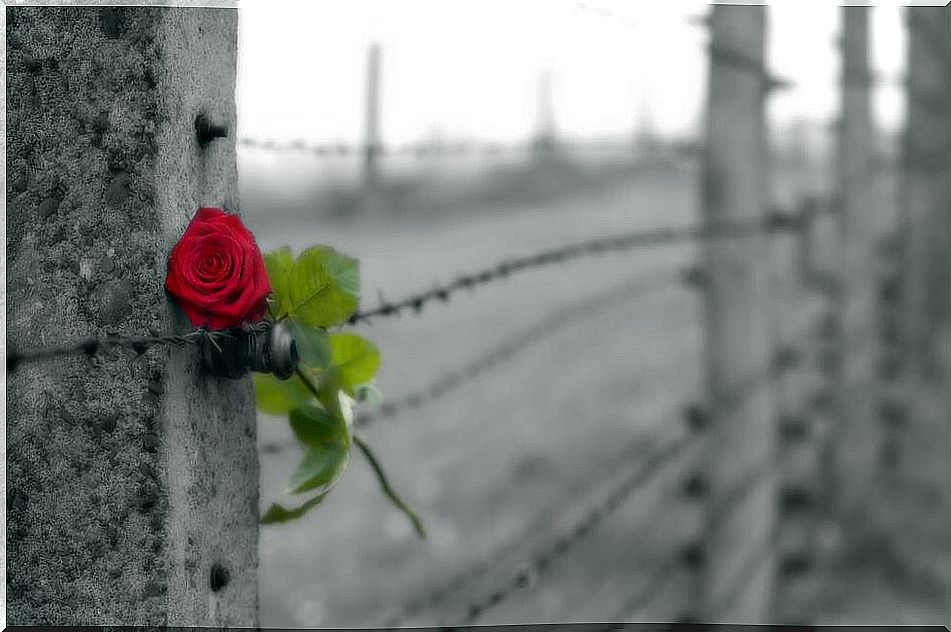The Duel Is A Farewell With Love

Life is loss. At every moment we can win, but whether we do it or not we always deliver, for example, time. Among these losses are those that alleviate us, those that we find indifferent or those that we wish we did not have to face. It can be a person who leaves, but it can also be an object, a possibility or a dream. Faced with this last type of loss, especially those that cut our skin in a deep wound, mourning is necessary.
Grief understood as an emotional framework in which we can express sadness, in which others come to us to give us a little warmth that compensates to some extent for the cold that enters through the vacuum that has been created. A state designed for empathy, for a few words and a lot of understanding.

A duel does not always awaken empathy
Unfortunately, a duel can be complicated in many ways. The first is because this social support does not occur. Most of us understand that a person can suffer when he loses a loved one, since unfortunately it is an experience that we all go through sooner or later. However, for some people, suffering from other types of loss is less understandable. For example, many of the people who have never shared their life with a dog or who have loved an animal do not understand the pain of their loss.
Other losses that are difficult to understand are opportunities or dreams. These belong to each one, many times worked alone and therefore contain an illusion that is difficult to express because you cannot equate it with anything. You can tell the other that you feel sad because all the work you have been doing for years has disappeared, that it will be very difficult for him to understand it if he has not accompanied you in that effort, if he has not seen your face on bad days. Explaining that is very complicated.

The three functions of grief
The first function of grief is to acknowledge that the loss has existed. In fact, an experience that is somewhat antagonistic to grief is denial: living as if that person, dream, illusion, object or animal were still in our lives. The person who denies the loss resists starting the grief.
In fact, when this denial occurs in the first moments we speak of an adaptive strategy because it slows down the impact while the brain, even if not consciously, begins to work with the information. However, this does not happen when the denial is perpetuated, since the person cannot begin the grieving process.
The second function of mourning is to recognize that the important thing that has left has existed. Grief in some way serves to cleanse the memory of what was lost. In this sense, the denial of grief can lead to guilt because, while the person tries to protect himself, he feels that he is betraying the memory of what is gone by not recognizing and acting as his heart dictates, recognizing the relevance of what is gone. In this way, she accumulates even more negative feelings and even a certain resentment and contempt towards herself.
Finally the duel allows the elaboration of the story. It gives us space to put the last sentences to the point and part and start a new chapter. Also in many cases, although not always as we have said before, it attracts the attention of others. Attention that encourages empathy, active listening and accompaniment. In this way, a possible sense of abandonment can be balanced in some world with the welcoming feelings that others provide.
Grief is in this way an intimate act of recognition and love for the person who has left. A letter written in the air in which pending issues are closed, in which there is a thank you for the timeshare and in which the signature never lacks a few simple words, “I’m going to miss you, forever.”









